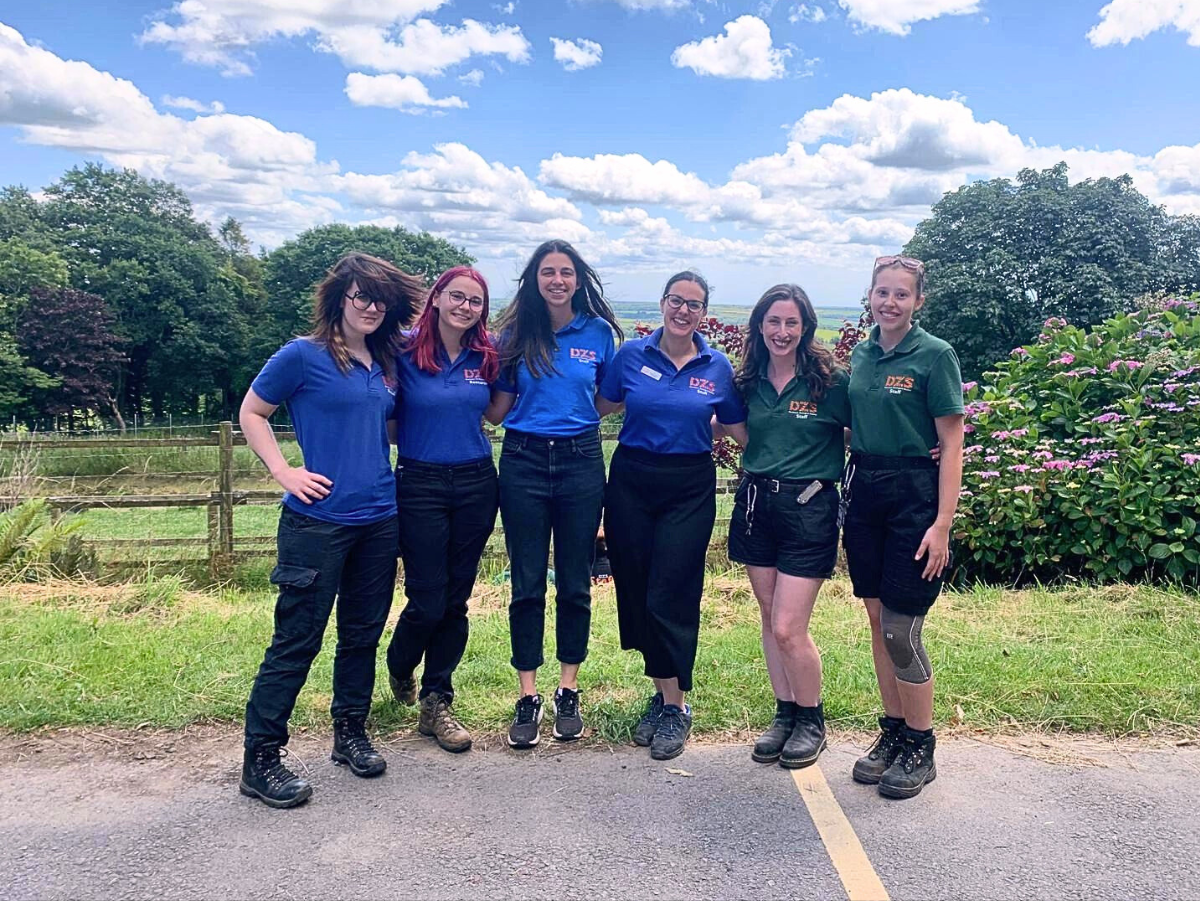At the start of July, Dartmoor Zoo hosted its annual research conference; ‘Research Rundown’, a showcase of the fascinating research conducted by our researchers and keepers over the past year. We were also joined by guest speakers from Paignton Zoo, Newquay Zoo, and Plymouth University.
This year’s event featured nine talks and two research posters, covering a wide range of topics, from animal behaviour and welfare, to the visitor experience and animal hormone analysis. It was a brilliant day of knowledge-sharing and collaboration between zoos and universities.
Here’s a quick rundown of the talks presented:
- Louise Cox – Research and Welfare Officer, Dartmoor Zoo: Introduction and an overview of research at Dartmoor Zoo.
- Jo Clark – Head of Research and Education, Dartmoor Zoo: Utilizing citizen science to help understand the visitor experience.
- Liani Curtis – Placement Student, Paignton Zoo: Investigating the behavioural effects of contraception on a troop of Hamadryas baboons: Implications for animal welfare and management.
- Abbie Starsmeare – Keeper, Dartmoor Zoo: You’ve changed! Does castration make male sitatunga less ballsy?
- Dr Niko von Engelhardt – Associate Professor, Plymouth University: Investigating the faecal cortisol levels of multiple species in response to evening events.
- Lucy Butler – Placement Student, Dartmoor Zoo: Investigating the impact of changing feeding schedules on binturong behaviour.
- Nilo Mason – Placement Student, Dartmoor Zoo: Eyes on the tiger: which external factors influence the activity budget of an Amur tiger?
- Jenna Crawford – Keeper, Dartmoor Zoo: Managing marmoset wasting syndrome – a case study.
- Dr Kathy Baker – Research Coordinator, Newquay Zoo: 13 years of research with captive Owston’s civets. What we know, what we don’t, and where do we go from here?
And two fantastic posters one from Maddy Tattersall, Placement Student at Newquay Zoo: Enriched experiences in Asian short-clawed otters, and one by Leila Dixon Reid, University of Plymouth student: Factors that influence visitor interaction with signage and dwell time at zoo exhibits.
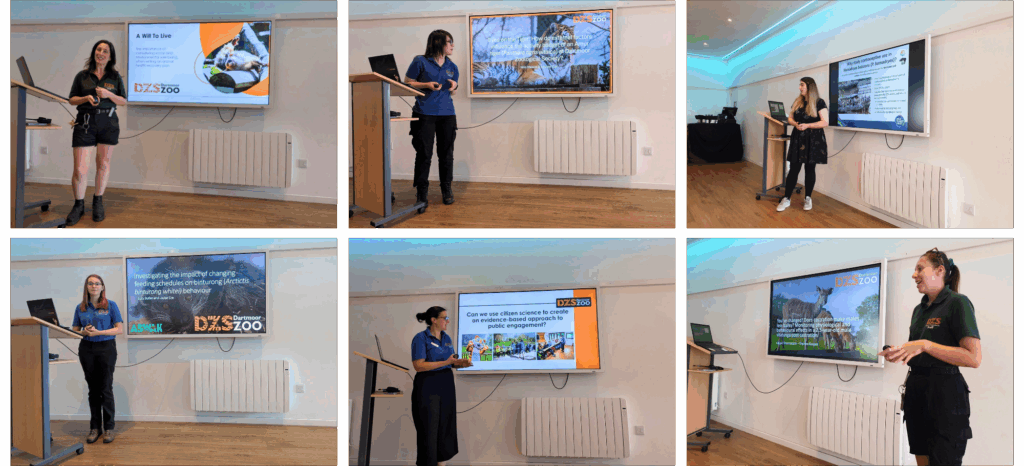
Why is Research in Zoos Important?
Research in zoos is crucial for improving animal welfare, evaluating and enhancing enrichment provision, supporting conservation, and helping animals thrive both in captivity and in the wild. It helps us make evidence-based decisions, track behaviour changes, and better understand the species we care for.
Sharing these insights across institutions also means we’re constantly learning from each other, which ultimately benefits animals on a broader scale.
To shed more light on research at a zoo and the role of placement students, our Research and Welfare Officer, Louise Cox, shares her insights:
‘Conducting research is one of the main aims of a modern zoo, and it helps us learn more about our animals to provide them with the best possible welfare, as well as supporting conservation. We predominantly research animal behaviour, though we also look at what they’re eating, what’s in their poo & how our visitors are using the site!
Our placement students are so valuable in helping us collect data and know what our animals are doing, and it’s great to give them the opportunity to not only share their results with the wider zoo team, but also help build their confidence with public speaking and networking with colleagues in other zoos.’
DZS Placement Students
This year’s Research Rundown offered a fantastic opportunity to showcase the brilliant work of our two placement students, Lucy Butler and Nilo Mason. While the event wasn’t a formal farewell, it was a great way for them to round off their placements by presenting their research to peers and professionals in the zoo community.
Lucy and Nilo joined us in September 2024 as part of their university placement years and quickly became valued members of the Dartmoor Zoo team. Over the past ten months, they’ve not only developed and carried out their own research projects but have also contributed to a wide range of zoo activities.
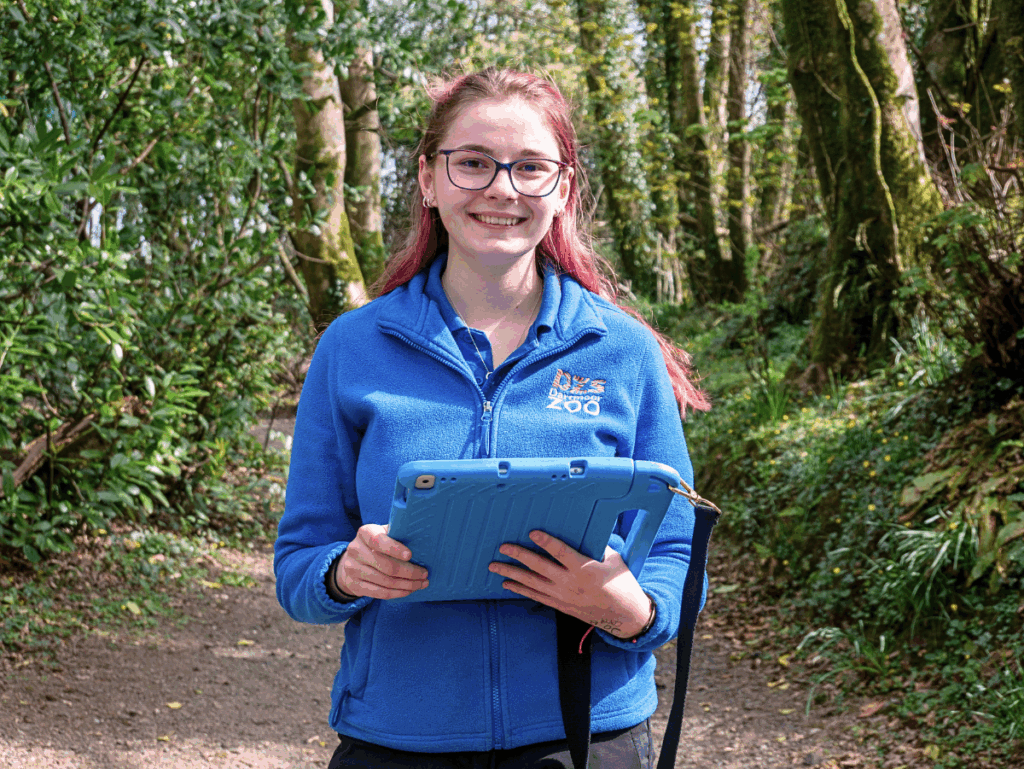
Lucy
‘My name is Lucy and I’m studying Psychology at the University of Southampton. I chose to spend my placement year at Dartmoor Zoo because I want to go into animal behaviour and welfare research in the future. I have absolutely loved my placement at Dartmoor Zoo!
Highlights include observing a wide variety of animals, making firehose enrichment, working on my research project, and getting involved with zoo events. I have loved learning about so many different areas of research as well as getting stuck into zoo life. My main project involved observing Malu, the Palawan binturong’s nocturnal feeding behaviour. My placement has taught me so much and has really helped me see that I want to continue working in this field.’
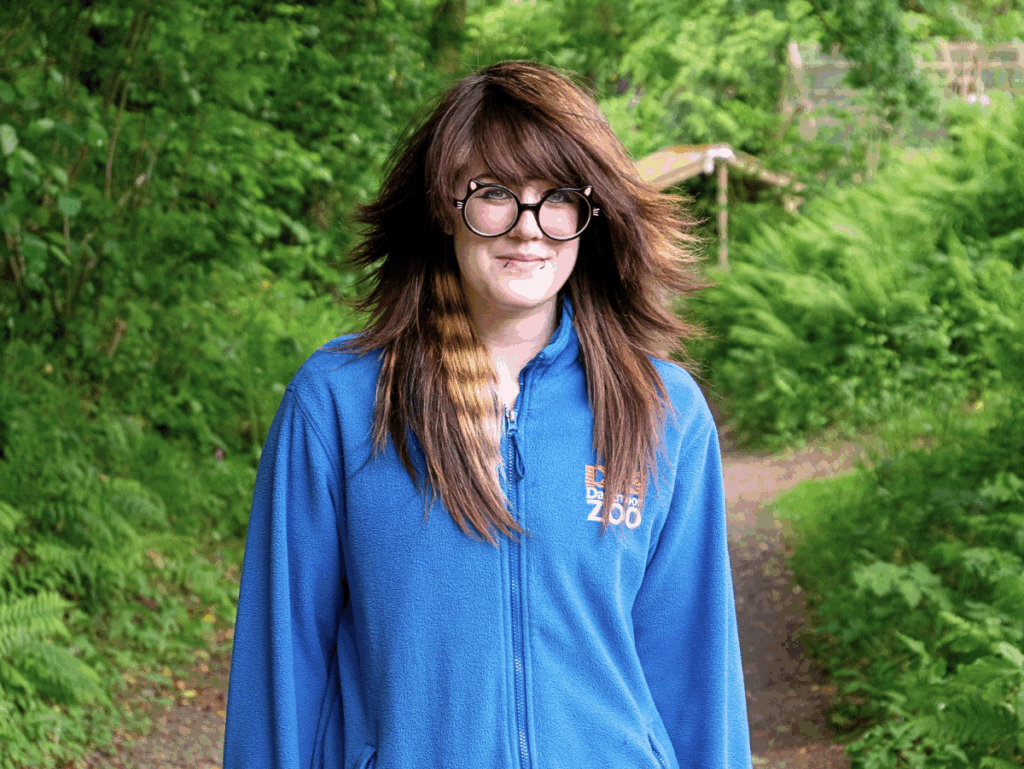
Nilo
‘My name is Nilo, I am studying BSc Zoology at the University of Reading. I applied for a research placement at Dartmoor Zoo because zoo research is something I am passionate about.
I have loved this role and took many projects under my wing to build skills across the board. Some of the projects I had worked on during my placement include monitoring the tiger and jaguar on CCTV cameras and conducting age and welfare reviews on ZooMonitor (an app for collecting behavioural data) for various animals.
As well as research, I have also gained experience in other areas, such as taking on a keeper role for a few days, helping marketing create educational content, and assisting the public engagement team during workshops and talks. This placement has given me a variety of experiences and has allowed me to build on my confidence immensely, especially when talking to the public. I am super grateful to be here!’
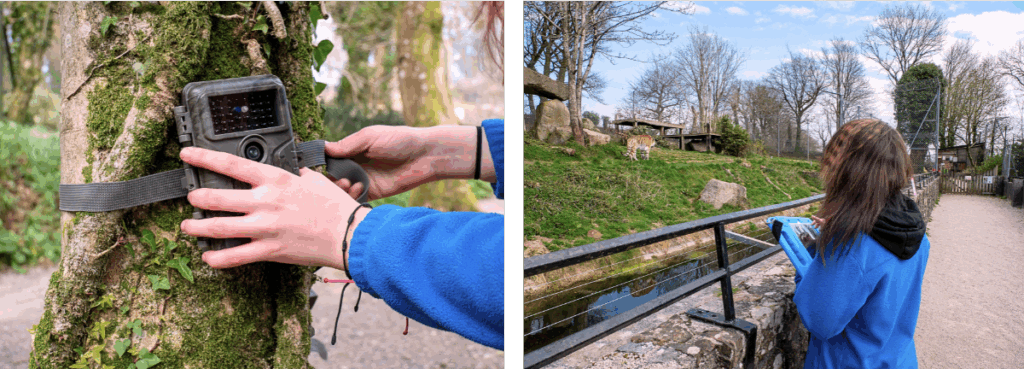
They also took their research a step further by presenting their research posters at the BIAZA Research Conference, gaining valuable experience and insight into the wider world of zoo-based science.
As their placements have come to an end this July, we want to say a huge thank you to Lucy and Nilo for everything they’ve contributed to Dartmoor Zoo. You’ve made a real impact here, and we’re excited to see where your journey takes you next!
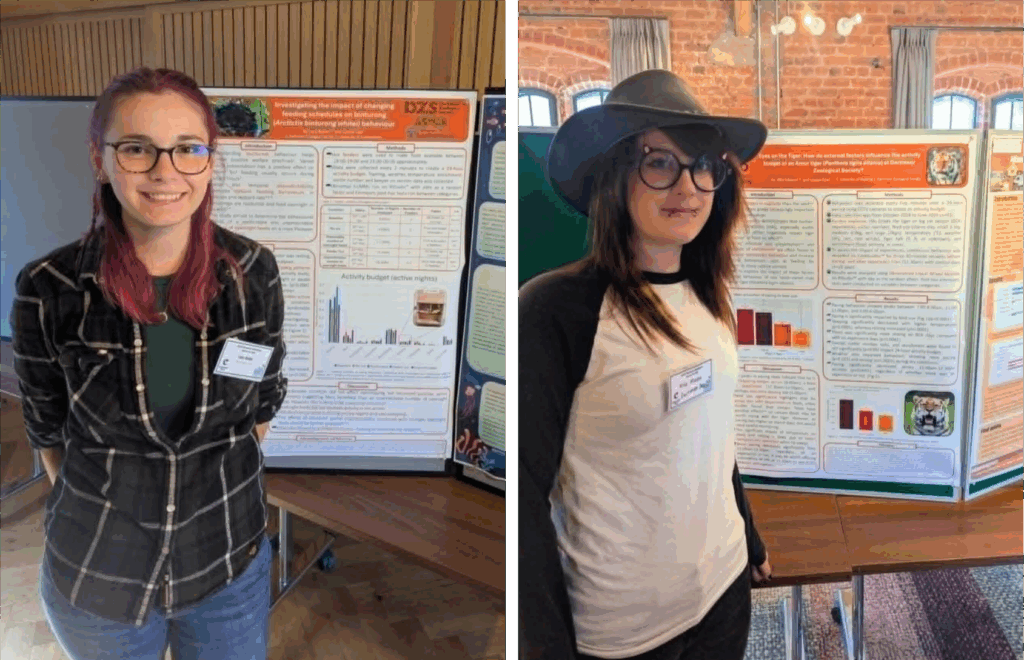
We want to say a big thank you to all our speakers, staff, and students who made this year’s Research Rundown such a success. Events like this are a great reminder of why we do what we do, and how vital it is to keep learning, questioning, and exploring.
